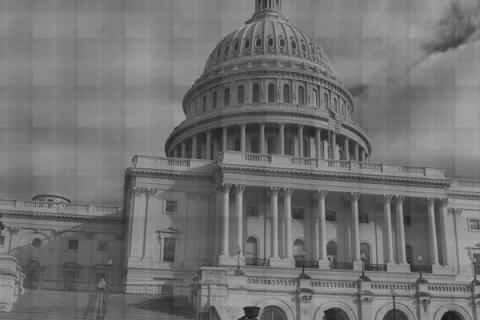As W.E. Messamore reported here at IVN yesterday, no candidate for the Americans Elect nomination for president reached the organization's internal threshold to qualify for its online nominating convention scheduled for June. According to a statement by the group's CEO Kahlil Byrd, its leadership and membership are currently discussing how best to proceed “before determining next steps for the immediate future.” An announcement regarding the results of these conversations is expected to be made as early as tomorrow.
The news of the group's failure to recruit a field of candidates for its presidential nomination sent a wave of schadenfreude through the Democratic and Republican blogosphere. “The project appears to be a bust, which is heartening -- Americans Elect was an overly-secretive, well-financed gimmick, eager to play electoral mischief for reasons that were never clear,” wrote Steve Benen at The Maddow Blog. “Bad News: Great new centrist-party hope can't pick a nominee,” announced Ed Morrissey at Hot Air.
Among those who are not professional cheerleaders for the Republican-Democrat two-party political status quo, however, there are likely a great many for whom the failure of Americans Elect to meet its caucus threshold will come as a significant, though perhaps not entirely unexpected, disappointment. So where did Americans Elect go wrong? One potential answer is that the organization approached the problem from the wrong direction, namely, from the top down.
There is no doubt that the contempt for the Republican and Democratic parties on the part of the American public has created a strategic opening for alternatives to the forced choice between two increasingly intolerable evils. The presidential contest, however, may well be the worst possible point at which to enter the breach. According to a Gallup survey published yesterday, 92% of those polled are already fairly certain as to who will win the presidential race, with 56% stating that they believe President Obama will secure re-election, while 36% are of the opinion that Mitt Romney will score an upset. Such perceptions of inevitability reveal that the two-party state is first and foremost a state of mind. A viable third party or Independent political strategy will likely have to build the opposition to the misrule of the two-party state from the bottom up, beginning with local and state offices, or even just a handful of promising candidates for US House and Senate. In politics, as in architecture, you cannot place a keystone until you've built a base and frame.
Another inherent weakness in the Americans Elect strategy is its implicit assumption that the ideal alternative presidential ticket would be bipartisan, consisting of one individual from each of the two legacy parties. Americans are leaving the Democratic and Republican parties in droves. Poll after poll reveals a deepening disgust with the reigning party system. If the public can no longer stomach the Democrats or the Republicans, what in the world would lead one to believe that people would line up to support a Democrat and a Republican?
Whatever may come to pass with the Americans Elect presidential ticket, the organization has nonetheless done a great service by obtaining ballot access in dozens of states across the country. These ballot lines will be guaranteed for a number of election cycles. It is thus entirely possible that, in the coming years, we will find independently-minded individuals taking advantage of the opportunity afforded by a pre-existing, empty ballot slot in future elections for offices at all levels of government.

